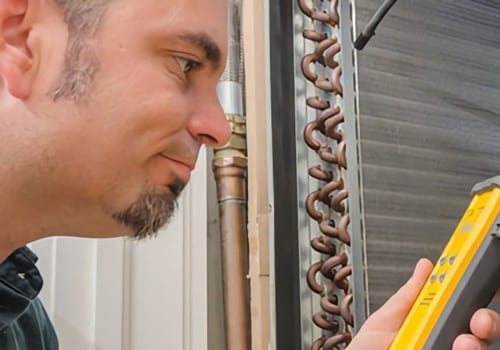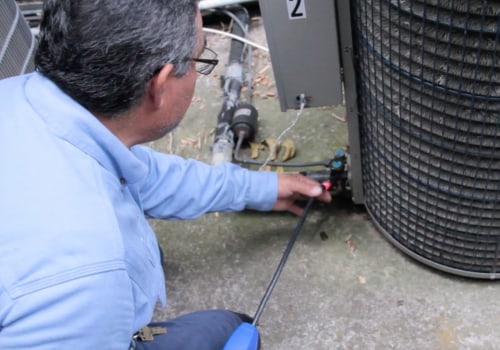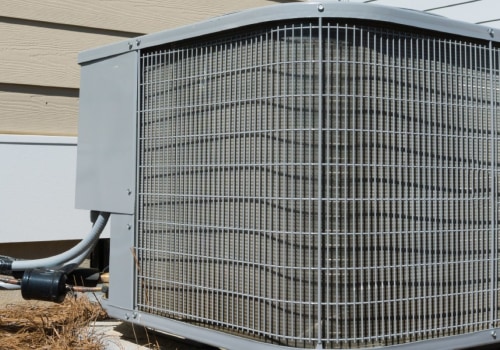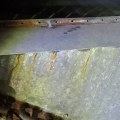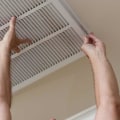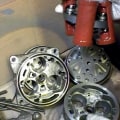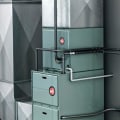Indoor Air Purification is more than a trend—it’s a key part of maintaining a healthy, safe, and livable home. While most people focus on visible cleanliness, what we don’t see—airborne pollutants, allergens, and toxins—can silently affect our health, comfort, and even our home's structural integrity. Homeward Environmental specializes in identifying and resolving indoor air quality issues that could be impacting your home right now.
Why Indoor Air Quality Should Never Be Overlooked
According to the EPA, indoor air can be two to five times more polluted than outdoor air. As homes become more energy-efficient and airtight, the unintended consequence is that contaminants can become trapped inside, leading to poor indoor air quality. Homeward Environmental has seen firsthand how this hidden threat affects everything from physical health to mental well-being and overall home performance.
Many common sources of indoor air pollution may already be present in your home:
- Mold spores thriving in damp or humid areas.
- Volatile Organic Compounds (VOCs) from paint, cleaners, furniture, and flooring.
- Dust mites living in bedding, upholstery, and carpets.
- Pet dander and hair circulating through your HVAC system.
- Combustion byproducts from gas stoves, fireplaces, or heaters.
- Insufficient ventilation causing a buildup of stale, polluted air.
Understanding the root causes of indoor air issues is the first step. Homeward Environmental’s professional inspections are designed to uncover the specific sources of contamination in your home and recommend tailored solutions that work.
Health Impacts of Poor Indoor Air
Even if your home looks spotless, the air you breathe could be negatively affecting your health. Poor indoor air quality has been linked to a wide range of short- and long-term health issues. These effects can be subtle or severe depending on the pollutants present and your sensitivity to them.
- Allergies and asthma: Airborne allergens like mold, dust, and pet dander can trigger allergic reactions and worsen asthma symptoms.
- Respiratory irritation: Pollutants like VOCs and particulate matter can irritate your lungs, eyes, throat, and skin.
- Fatigue and headaches: Exposure to poor air quality has been associated with brain fog, difficulty concentrating, and chronic headaches.
- Long-term health risks: Prolonged exposure to indoor pollutants may increase the risk of respiratory diseases and other chronic illnesses.
Children, older adults, and those with compromised immune systems are especially vulnerable, but everyone can benefit from cleaner, healthier indoor air.
Top Proven Strategies for Indoor Air Purification
At Homeward Environmental, the approach to improving indoor air quality is comprehensive, combining modern technology with tailored environmental analysis. Here are the most effective strategies for purifying the air inside your home:
1. Upgrade Your Filtration System
Standard HVAC filters may catch large debris, but they often fail to trap fine particles and airborne allergens. Installing a high-efficiency particulate air (HEPA) filtration system can significantly reduce allergens and improve respiratory comfort. For households with pets, smokers, or allergy sufferers, this upgrade can be life-changing. Homeward Environmental can help you choose and install the most effective system for your space and air quality goals.
2. Improve Home Ventilation
Proper ventilation brings in fresh air and pushes out stale, contaminated air. Many modern homes are sealed so tightly for energy efficiency that they don’t allow for this natural exchange. Mechanical ventilation systems, such as energy recovery ventilators (ERVs), can ensure fresh airflow while maintaining your home’s energy efficiency. Opening windows, especially in kitchens and bathrooms, also helps when weather permits.
3. Control Humidity and Moisture
Too much humidity encourages mold, mildew, and dust mites. On the flip side, air that’s too dry can cause respiratory irritation. Aim for a humidity level between 30% and 50%. Homeward Environmental offers moisture assessments, and if needed, dehumidifier installations and leak repair guidance to help you maintain optimal indoor conditions.
4. Use Whole-Home or Portable Air Purifiers
Depending on your home’s layout and specific needs, a portable or whole-home air purifier may be recommended. These devices use a combination of filters—like activated carbon and HEPA—to capture fine particles and neutralize odors and chemicals. Not all purifiers are created equal, so choosing a model that matches your space and targets your air quality issues is crucial. Homeward Environmental provides expert advice and installation services for advanced purification systems.
5. Eliminate Pollution at the Source
While filters and purifiers are effective, source control is the most impactful long-term strategy. This involves reducing or eliminating materials and products that emit harmful substances. Choose low-VOC paints and furniture, clean with non-toxic products, avoid smoking indoors, and fix any plumbing leaks that may promote mold growth. Homeward Environmental’s team helps clients identify and address these often-overlooked contributors to poor indoor air.
6. Regular Cleaning and Maintenance
Routine dusting, vacuuming with HEPA-filtered vacuums, and replacing HVAC filters as recommended are all essential. It’s also wise to schedule regular inspections of your ductwork, especially if your home has had remodeling, water damage, or rodent activity. Homeward Environmental offers home assessments to determine whether a professional duct cleaning is necessary.
How Homeward Environmental Supports Cleaner Indoor Air
Every home is different, and that’s why Homeward Environmental takes a customized approach. Their indoor air quality assessments go beyond simple measurements—they uncover the actual sources of pollution and offer science-backed, achievable solutions. Whether your concern is mold, allergens, VOCs, or just general air freshness, their team is equipped with the knowledge and tools to transform your environment.
- Comprehensive indoor air quality inspections
- Identification of specific pollutants and allergens
- Humidity and moisture diagnostics
- Filtration and purification system installation
- Ventilation and airflow improvement strategies
Everyday Tips for Maintaining Clean Indoor Air
Even small changes can make a big difference in your home’s air quality. Here are a few easy-to-implement tips you can start using right now:
- Open windows regularly to refresh indoor air when outdoor conditions allow.
- Run exhaust fans in kitchens and bathrooms during and after use.
- Use indoor plants that naturally purify the air—but don’t overwater them.
- Declutter surfaces and vacuum at least weekly with a HEPA-rated vacuum.
- Wash bedding frequently in hot water to reduce allergens.
- Keep shoes at the door to prevent tracking in outside pollutants.
Take Control of Your Home’s Air Today
Clean air is essential to your family’s health, and it's within your reach. You don’t have to live with sneezing, coughing, or unknown irritants any longer. Whether you’re dealing with moisture issues, strange odors, or unexplained allergies, Homeward Environmental has the tools, training, and technology to get to the root of the problem. Don’t wait until symptoms worsen or damage becomes visible. Contact us to schedule your indoor air quality assessment and start breathing easier in your home today.

